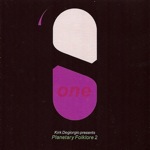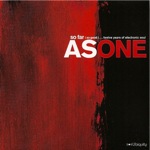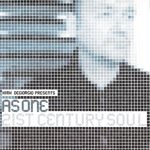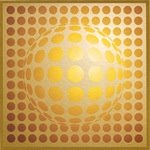
When Apple announced Logic Studio 8 - a more intuitive, simplified version of their complex sequencer/DAW, I finally felt comfortable enough with it to reluctantly abandon my aging Pro Tools Mix 24 system.
I love Pro Tools. I had been using it since I bought an Audiomedia III card back in 1997. In contrast, I disliked Logic. I always found it too clever for its own good - too many features, options, unintuitive layout and the dreaded Environment.
Problem was, for years Pro Tools lagged behind Logic when it came to MIDI editing and song creation. So for years I ran both systems, synced via MTC. I would get all my initial track creation and MIDI programming done in Logic - and record the audio, edit and mix in Pro Tools.
I ran Pro Tools on a beige G3 Mac, and Logic on a standard PC. I needed both platforms because Pro Tools was Mac only and Gigastudio (which I used at the time), was PC only. Except for the odd sync problem this cumbersome method served me well - but I longed to just have an all-in-one DAW that did everything.
Digidesign gradually added better MIDI capabilities to Pro Tools, whilst Emagic seemed to make audio editing and mixing even harder in Logic. When Apple bought Emagic and announced Logic would be Mac only, it was the excuse I needed to dump Logic for good and exclusively use Pro Tools.
To complicate matters, Ableton Live came along and was a revelation for both DJing and song-creation. Using ReWire I used the ultra-intuitive Live for getting together initial track ideas and imported the audio into Pro Tools for further editing and mixing.
In 1999, I had purchased the very latest Digidesign bundle - a Pro Tools Mix 24 system, with 888/24 interface and a G4. This system served me well up until last year when I decided I needed to take advantage of the improvements in Digital convertor technology and improve upon the rather average quality of the now aging 888/24 interface.
My dilemma: Digidesign offer two systems - HD, the top of the range TDM system which replaced Mix 24 and uses DSP chips alongside the host computer's CPU for power. HD is compatible only with Digi's top-of-the-range interfaces, or a limited number of expensive third-party options with HD adapter cards. Alternatively they offer a native LE system, which is track-limited, relies on the host computers CPU power and is only compatible with Digi's lower-cost range of interfaces such as the 003 or M-Box series.
An HD system was prohibitively expensive - even with Digidesign's discounted upgrade path for existing Mix 24 users. I don't mind paying out if needs be, but unlike when I purchased the Mix 24 system, I no longer thought the outlay value for money considering the quality of alternative Native based systems using third-party interfaces superior to Digi's own brand.
It was around this time that Apple announced Logic Studio 8 - a stripped down, more intuitive re-write of Logic. Not only was it superbly priced, it came bundled with previously paid-for extras such as Space Designer, the convolution reverb. It was a no-brainer to buy Logic to get up to speed with it on my MacBook Pro until I decided which system to buy.
After a few weeks with Logic 8 - it was obvious this was no longer the bloated, overly complex program I struggled with years earlier. Surprising myself therefore, I started to seriously consider switching to a Logic only system based around a powerful new eight-core Mac Pro (more than enough power for sessions with large track-counts and more plug-in's than I'd ever need), and an Apogee Symphony system.
Apogee's Symphony system had the advantage of very low-latency (the bane of native based systems) and close collaboration with Apple. I had been using an Apogee Duet firewire interface with my MacBook Pro for awhile, so I purchased a new Mac Pro, installed Logic and the Duet and enjoyed a few weeks work.
Just before I was ready to test-drive a fully blown Apogee Symphony system, a new interface was introduced by Prism Sound: Orpheus, a firewire based eight channel converter with onboard zero-latency mixer. I had used Prism convertors before - at Abbey Road. They were the best I'd ever heard - beating even the Radar system at a local studio I regularly use.
After glowing reports from my trusted dealers of choice Funky Junk UK, I arranged to pick up a demo unit from the Prism Sound factory in Cambridge - not far from where I live. I was so impressed by the Orpheus that I bought the unit immediately.
After using this system for six months I was more than satisfied with the vast improvement in sound quality, but still found Logic a little tricky when it came to editing audio and mixing. These issues, combined with working in external studios where Pro Tools was standard, forced me to buy Pro Tools LE, using a little M-Box Micro USB interface.
This is the setup I currently use: recording and programming in Logic using the Prism Orpheus - then exporting the tracks to a Pro Tools LE session for complex editing (Beat Detective and such) and back to Logic for mixing. Ableton Live still plays a role in sketching out initial ideas for tracks but mostly I use it for DJing.
This setup is still not ideal. I prefer to record at 96khz, but the M-Box Micro will only allow sessions up to 48khz. Also, Pro Tools LE is track-limited and some of my sessions run up to 100 audio tracks or more - albeit many of these can be consolidated.
So, imagine my confusion and sad excitement after the recent release of Pro Tools 8 and the announcement of Ableton Live 8. Both these programs have "upped the ante" and it now looks like I will be using a combination of all three programs for music production!
I have upgraded to Pro Tools 8 LE already. It is a huge improvement. Digidesign had stopped supporting Mix 24 systems some years ago and my system was stuck on the last compatible release: 6.4. I had been unable to take advantage of the elastic audio features recently introduced so this was a great addition to my toolbox.
Pro Tools 8 not only looks infinitely better, but it now has 10 plug-in slots, comes bundled with an impressive range of new instruments and plug-ins from the AIR design team, has elastic pitch as well as tempo, hugely improved MIDI editing and automation track handling increased track-count (up to 48 stereo tracks), a new comping tool, score facilities, etc, etc.
I would need to buy a new Digidesign interface with ADAT inputs to connect to my Orpheus for recording, and 96khz capability for Pro Tools to become my main DAW once again. The only feature of Logic I would miss is the sheer amount of bundled plug-ins - especially the Space Designer reverb. If I found an equivalent of this for Pro Tools I could once again make the switch.
Ableton Live 8 now has creative features and an online sharing solution that once again makes it indispensable. I find Live hard to beat for getting ideas started and now I can collaborate with other Live users in an elegant way rather than spending hours uploading full .wav or .aiff files to FTP servers or emailing guide tracks in mp3 format. Collaborators can now receive my full Live sessions over the net.
SO... it looks like I'll be needing to keep up-to-speed with all 3 DAW/sequencers... Logic Studio 8, Pro Tools 8 and Ableton Live 8. Oh... and Numerology looks interesting too....;-)













1 comment:
Check out Altiverb as a replacement for Space Designer. It works with Pro Tools now. From what i've read, almost everyone seem to prefer Altiverb.
That reminds me, i was going to take a look at Numerology 2 :)
Post a Comment